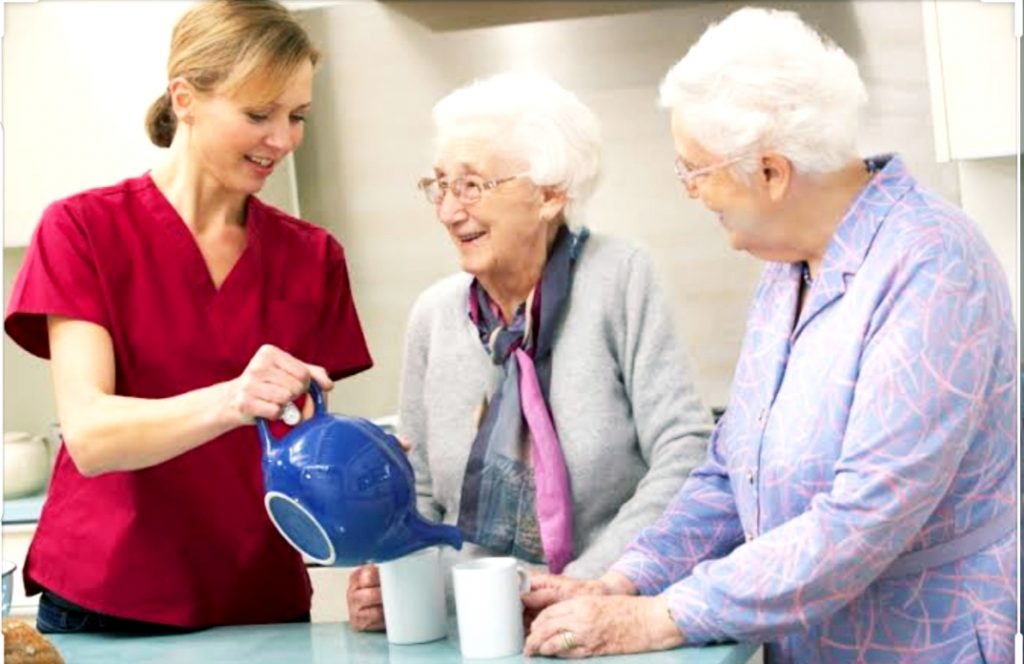By His Grace and Blessings, I write
Cancer Treatment: The Palliative Care Alternatives
In my last blog I commenced a discussion on hospice or palliative care. This blog will discuss the concepts, the benefits and the advantages, the past, present and future of palliative care.
What is Hospice/Palliative Care; The Concept
Dame Cicely Saunders, the founder of first modern Hospice Care once said…” You matter because who you are. You matter to the last moment of your life, and we will do all we can, not only to help you die peacefully, but also to live peacefully until you die”.
Palliative/hospice care is a special kind of care which looks at the person in the patient with compassion, and helps him live comfortably and peacefully, and painlessly, as far as possible in the warmth of his home during the last days of his life. The idea is not to treat the disease or to hasten/postpone the inevitable, but to treat the symptoms of the disease for which modern healthcare industry is ill equipped.
Benefits/ advantages of Palliative Care:
The medical-industry does not concern itself with issues such as treatment of pain and other symptoms, financial capacity of the patient, emotional scars on the patient or his family during treatments and after the death of the patient, or wishes of the patient to be with his family members in his last days etc. In fact, there is a market-failure and void in medical industry on all these fronts
The palliative care addresses this market-failure/void and limitations of medical industry by actively involving the patient and his/her family members in decision making and informs them adequately about the chances of their survival after these treatments. The professionals help patients in arriving at acceptance of one’s mortality and give them a clear understanding of the limits and possibilities of medicine. This leads to informed decision making and saves patients from lot of pain, financial and emotional distress and maintaining his dignity and sanity during last days of his life.
A landmark study from Massachusetts General Hospital revealed that those who saw palliative care specialist stopped chemotherapy sooner, entered hospice far earlier, experienced less suffering at the end of their lives and lived 25% longer. The palliative care has the many advantages like ….
- In management of mental, emotional, social, and spiritual issues that may come up during last days of life of a terminally sick patient
- The discomfort, pain, nausea and other side effects are managed to make patient feel better
- Family members are constantly updated on the condition of the patient and what to expect thus giving them a learning experience about death and process of dying. Discussions and gradual acceptance of mortality of life helps in garnering emotional strength to face the distress
- In coordination of care like providing, supervising and coordinating 24/7 with everyone involved like doctor, nursing staff, hospital and family members
- In bereavement care whereby the hospice team works with the family members through grieving process for more than a year after death of the patient
Palliative care is provided irrespective of patient receiving active treatments or not.
Past/Present and Future of Palliative Care:
According to an article published in Lancet Oncology in 2007, “Palliative care and hospices have developed rapidly since late 1960s. The pioneering work of Dame Cicely was instrumental in drawing attention to the end of life care needs of patients with advance malignant disease”……….
In India, the palliative care movement gained momentum with the establishment of Pain and Palliative Care Society (PPCS) in Kerala in 1980s by Dr M R Rajagopal with active assistance from Dr Suresh Kumar and Ashok Kumar. WHO declared this society as a model project for developing countries. After Kerala, nearly 14 more states have formed such charitable societies. A National Program for Palliative Care (NPPC) was launched in 2012 and in 2014 the NDPS act was amended to ease the use of opioid for pain relief as per demands of these societies.
In 2008, Kerala declared a Palliative Care Policy across all levels of healthcare- primary, secondary and tertiary and WHO included such policy in its advisory for all the countries. More then 300 NGOs provide palliative care across the state of Kerala.
However, there is acute government apathy and opposition from vested interests to this concept. Even after 40 years of its launching, palliative care just covers 1% of the Indian population. Lack of funds and ignorance about this concept both amongst medical fraternity and general population is responsible for this poor state of affairs.
The future success of this model is a necessity for developing countries in general and India in particular. Consider that India is one of the poorest countries in the world but has mostly privatized healthcare systems. Moreover, we are in an age of nuclear and sub-nuclear families where there is no social security mechanism to take care of any of us during a healthcare crisis in our lives. The Corona epidemic has revealed the huge gaps in medical facilities /readiness and apathy of the private and government systems. In such a scenario we need Kerala’s initiatives on palliative care to be implemented in right earnest for our own benefit. There is considerable need to form pressure groups to start a palliative care movement and see to it that it gets implemented as a major alternative to big paternalistic medical and pharma industry model of cure. Dr Murray’s vision of palliative care covering “all patients, all disease, all setting, and all dimensions” cannot be realized any other way.
By His Grace and Blessings, I write….
Dr.Seema Chaudhary


12 Responses
Very well written ma’am
thanks Priyanaka…hope you liked it..please read part of this series and comment… i would be glad if you could read my other blogs and offer some valuable and thought provoking comments..thanks ..
Rightly explained madam. A project named “The Arogyakeralam project” run by Govt of Kerala. As per the information they have formed a network of volunteers with active support of the community. It has been showing very good results for patients with terminal illness and disease requiring long term support.
Hope same concept would be implemented by other states. Thanks m’m for covering the issue.
thanks Baitha ji for sharing useful information around this issue..yes palliative care is utmost necessity of our times..but governments or corporatised health systems will not implement the same until there is a public movement in its favour..we don’t get anything without fight ..so try to make it a movement ..
Great post however I was wondering if you could write a litte more on this topic? I’d be very grateful if you could elaborate a little bit further. Appreciate it!
Thanks Byron for your kind appreciation of my blog…i have posted one more post on this issue..moreover, if you have access to Netflix there is a beautiful programme around this issue of Palliative/ Hospice care which has been very recently uploaded…kindly watch the same..
very nice and informative article.. thank you
thanks Sandip for your kind appreciation
Good article ma’am.
As discribed in the preceding article as well, the practice of palliative care is extremely essential now-a-days. A good awareness generating subject which is highly relatable, acceptable and applicable to many of us in today’s time.
Thanks Mane ji for your valuable insights…as pointed out by you, we certainly need these kind of policy changes..however, we are being governed by an utterly dysfunctional political and bureaucratic system which never will do that..so a civil society movement is the need of the hour to save millions of us when we age..thanks..
very nice and informative
thanks Sandip…keep reading …